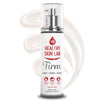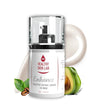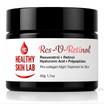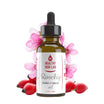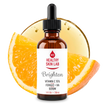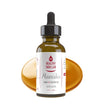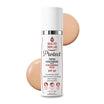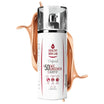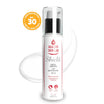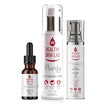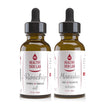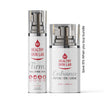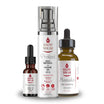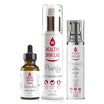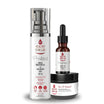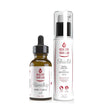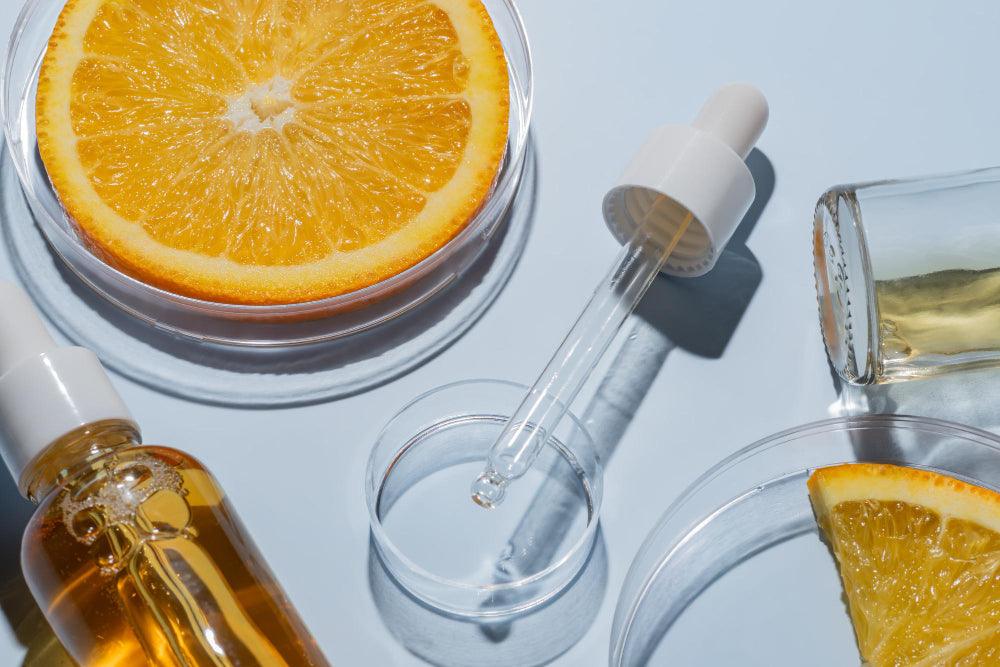Ever slather on your favorite moisturizer only to be met with a burning sensation? It can be alarming and leave you wondering, "Is moisturizer supposed to burn?"
Fear not, fellow skincare enthusiasts! While a slight tingle occasionally might not be a cause for concern, burning is definitely not the norm. Here's the expose on why your face glows with moisturizer and what you can do about it:
Face Burns with Moisturizer: Important Factors to Consider
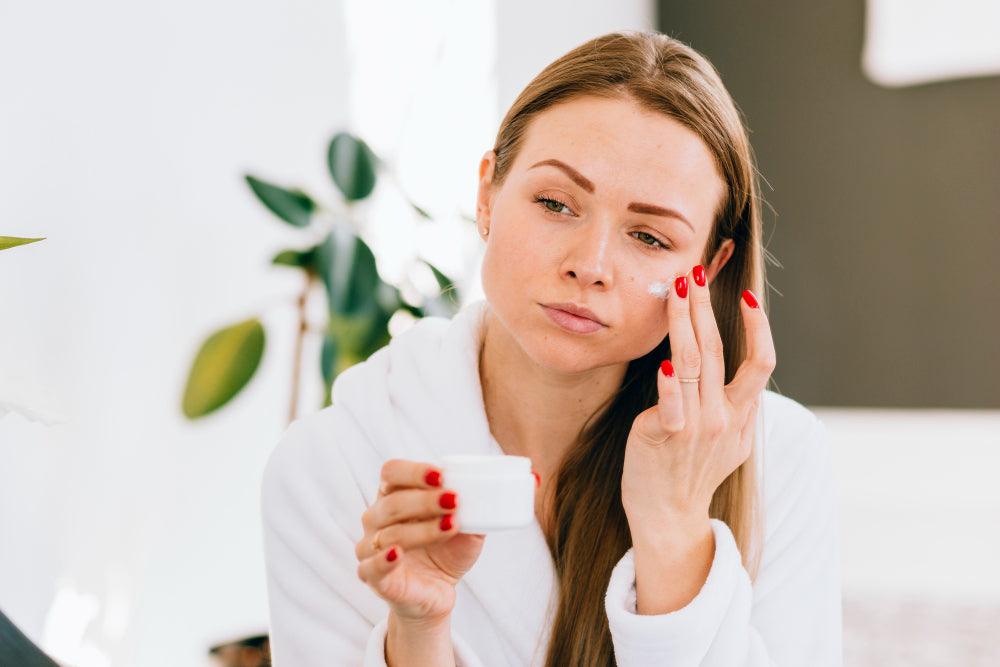
When your moisturizer causes a burning sensation, it's crucial to scrutinize its ingredient list. These culprits can trigger irritation, particularly for sensitive skin types:
- Fragrances
- Preservatives
- Active compounds like AHAs and retinoids, and more.
Opt for products labeled as fragrance-free and formulated for sensitive skin to minimize discomfort. Additionally, consider patch-testing new products on a small skin area before widespread use.
Sensitive Skin Struggles: Navigating Skincare with Care and Caution
Why does moisturizer burn? Perhaps you have sensitive skin. Sensitive skin requires extra TLC, as it is more prone to irritation and inflammation. If your face burns after moisturizer application, it may be a sign that the product is too harsh for your skin type.
Look for gentle formulations free from potential irritants, such as dyes and synthetic fragrances. Moisturizers with soothing ingredients such as aloe vera and colloidal oatmeal can provide relief for sensitive skin.
The pH Factor: Balancing Act for Healthy Skin
Maintaining the skin's natural pH balance is essential for optimal health and comfort. Skincare products with overly acidic or alkaline pH levels can disrupt this delicate equilibrium, leading to irritation and burning.
Choose moisturizers formulated to support the skin's natural pH, typically 4.5 to 5.5. Ingredients like hyaluronic acid and ceramides help restore balance and promote a harmonious environment for your skin.
Moisture Barrier Mishaps: Repairing and Strengthening Your Skin's Defense
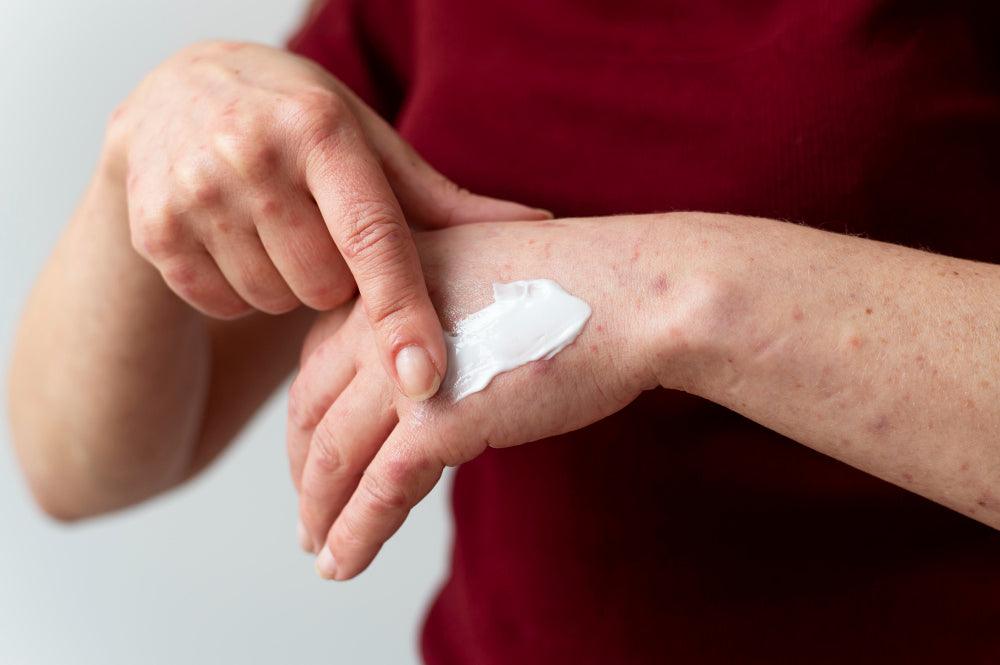
Our skin's moisture barrier protects against external aggressors, sagging skin, and moisture loss. Damage to this barrier can result in increased sensitivity and discomfort, especially when using skincare products.
If your moisturizer burns upon application, it could indicate underlying damage to your skin's protective barrier. Look for moisturizers enriched with barrier-strengthening ingredients like niacinamide and panthenol to promote healing and resilience.
Is It Supposed to Burn?
We are dispelling misconceptions about skincare sensations here. While some skincare products may cause a slight tingling sensation upon application, severe burning or stinging is not normal and should be addressed promptly.
If your moisturizer consistently causes discomfort, it's essential to reassess your skincare routine and seek professional advice if necessary.
Skincare should enhance your skin's health and comfort, and not cause unnecessary irritation or distress. Trust your instincts and prioritize your skin's well-being above all else.
Calming the Burn and Finding Your Perfect Match

Here are some steps to take if your face burns after moisturizer:
Stop Using the Product Immediately: Take Swift Action to Prevent Further Irritation
When your moisturizer induces a burning sensation, discontinuing its use is paramount to halt any potential aggravation. Ceasing application immediately minimizes the risk of exacerbating the discomfort and allows your skin to begin the healing process.
Removing the offending product from your skincare routine prevents continued exposure to irritants, promoting faster resolution of symptoms and reducing the likelihood of long-term damage.
Soothe the Skin: Embrace Soothing Solutions to Quell the Burn
After halting the irritating moisturizer, soothing your skin becomes the next crucial step. Opt for gentle, fragrance-free moisturizers or cooling aloe vera gel to alleviate the burning sensation and calm inflammation.
These formulations provide much-needed hydration while delivering a soothing, barrier-protective layer to reduce discomfort. Additionally, consider incorporating ingredients known for their calming properties, such as chamomile extract or colloidal oatmeal, to further soothe and nurture sensitized skin.
Identify the Reason: Delve Into Ingredient Analysis to Discover Potential Irritants

Scrutiny of your moisturizer's ingredient list is essential to pinpoint the source of the burning sensation. Look for common irritants like fragrances, alcohol, and preservatives, which can trigger adverse reactions in sensitive individuals.
Keywords such as fragrance-free, alcohol-free, or hypoallergenic signal formulations are designed to minimize irritation and are worth seeking in future products. By identifying and avoiding problematic ingredients, you can tailor your skincare regimen to better suit your skin's needs and prevent future discomfort.
Patch Test: Exercise Caution With New Products Through Preliminary Testing
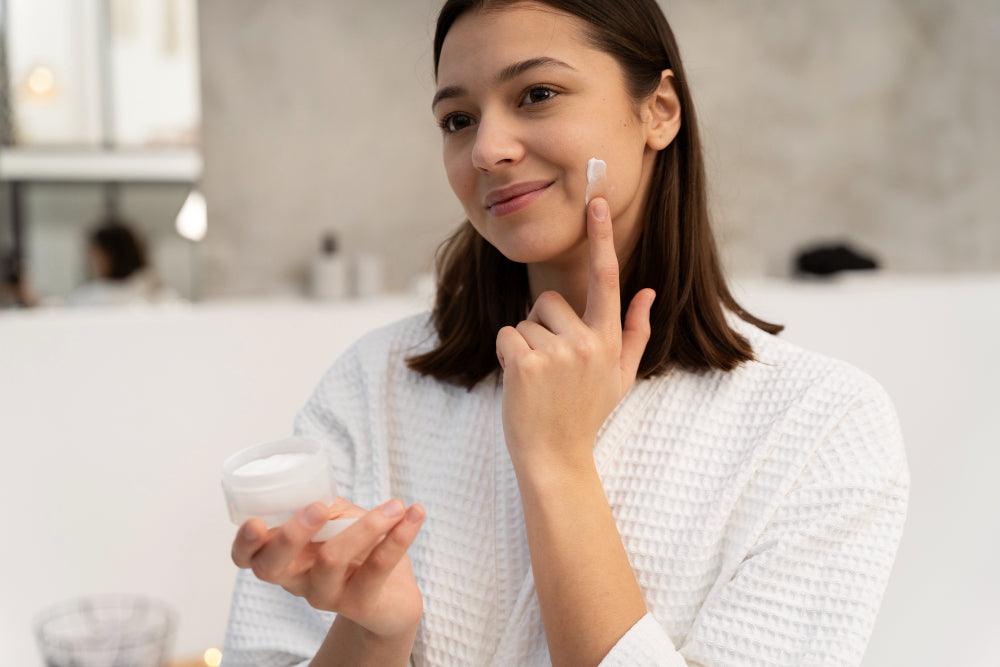
Before introducing any new skincare product to your face, conduct a patch test on a small, inconspicuous area, such as the inner elbow or behind the ear.
Apply a small amount of the product and observe for any signs of irritation, like redness, itching, or burning, over the next 24 to 48 hours. This precautionary measure allows you to assess the product's compatibility with your skin and detect potential adverse reactions before widespread use.
Remember, patience is critical when introducing new skincare products; erring on caution can prevent unnecessary discomfort and frustration. Everyone's skin is unique. What works wonders for one person might not be suitable for another.
Don't be afraid to experiment with fragrance-free and gentle moisturizers until you find your perfect match, one that nourishes your skin without burning!
Consult a Dermatologist: Seek Expert Guidance for Persistent Issues
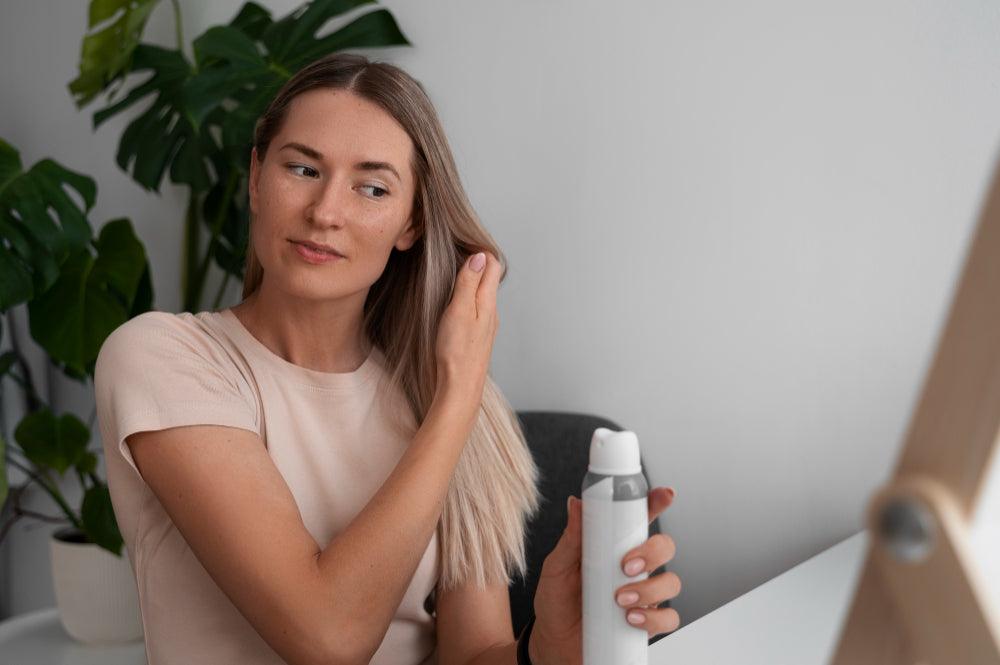
Why does my face burn when I put moisturizer on? By now you've got the answer.
If the burning sensation persists or worsens despite discontinuing the offending product and implementing soothing measures, it's time to seek professional advice.
A skin expert can thoroughly evaluate your skin, identify underlying causes of irritation, and recommend appropriate treatment options.
Whether addressing an undiagnosed skin condition, adjusting your skincare routine, or prescribing medicated creams or ointments, a skin specialist or a dermatologist can provide tailored solutions to alleviate discomfort and restore skin health.
Also read:

